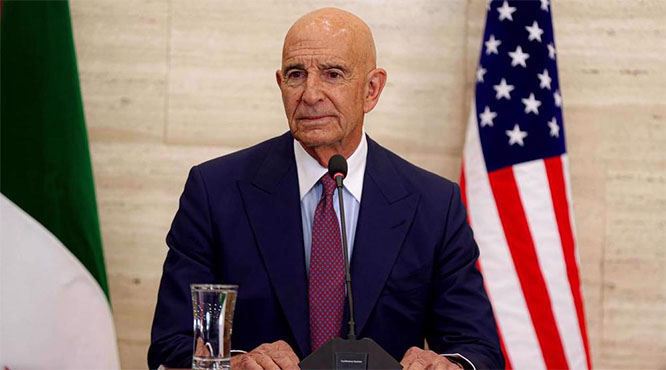Mumbai, Dec 10: The Shiv Sena on Tuesday said centralisation of power in the Prime Minister's Office (PMO) was one of the main reasons for the "poor" economic health of the country.
The central government wants the finance minister and RBI Governor under its control, an editorial in Sena mouthpiece 'Saamana' claimed, adding that the present BJP-led dispensation is not ready to listen to economists as it considers the economy as a "share market gamble".
It supported concerns raised by former RBI governor Raghuram Rajan, who recently said India is in the midst of a "growth recession" with signs of deep malaise in the economy that is being run through extreme centralisation of power in the PMO and powerless ministers.
India's economic growth slowed to a six-year low of 4.5 per cent in the July-September quarter. With inflation rising, fears of stagflation -- a fall in aggregate demand accompanied by rising inflation -- have resurfaced.
The Shiv Sena said former prime ministers Jawaharlal Nehru and Indira Gandhi cannot be held responsible for the country's present economic situation.
"Centralisation of power in PMO and powerless ministers - this situation is not good for the economy," the Marathi publication said.
"The present government is not ready to listen to economists as it considers the economy like a 'share bazaar satta'. What is Nirmala Sitharaman's contribution as finance minister - 'I don't eat onion, you also do the same'," the Uddhav Thackeray-led party said in taunting remarks.
The government wants the finance minister, RBI governor, finance secretary and Niti Aayog Chairman under its control, it claimed, adding that this is the main reason for the country's "poor" economic health.
The economy is "paralysed" and former RBI governor Raghuram Rajan's "diagnosis" is absolutely correct.
"The government is not ready to accept the economic slowdown. When the onion prices touch Rs 200 per kg, the finance minister says 'I don't eat garlic, onion, so don't ask me'," it quipped.
The Sena said Prime Minister Narendra Modi was "not trying" to improve the situation. "When he was the chief minister of Gujarat, he had expressed concern over the rising onion prices," it noted. The Sena said that PM Modi had said onion is an essential commodity and it has become so costly that it will have to be "kept in lockers".
"The situation has changed and Modi is now the prime minister and the economy is in a 'crisis'. An unconscious person is brought back to senses by being made to smell onion, but this is not possible now since onions have disappeared from markets," it said in sarcastic comments.
The Sena also blamed decisions like demonetisation and "unnecessary focus" on projects such as the bullet train for the current economic situation.
"Whatever Pandit Nehru and his colleagues earned for the country, this government is selling it off," it said, apparently referring to the proposed sale of public sector undertakings like the BPCL and Air India.







Comments
Vote for hindu rastra and eat sand and mud this is the aukaat of you people..all the best for futur
Add new comment